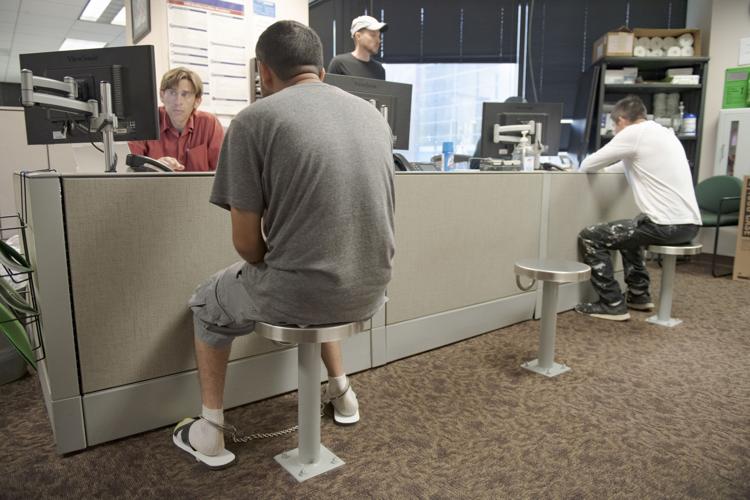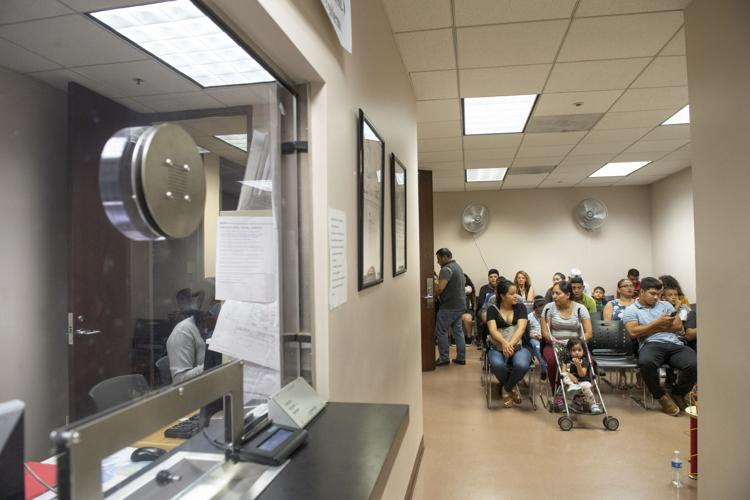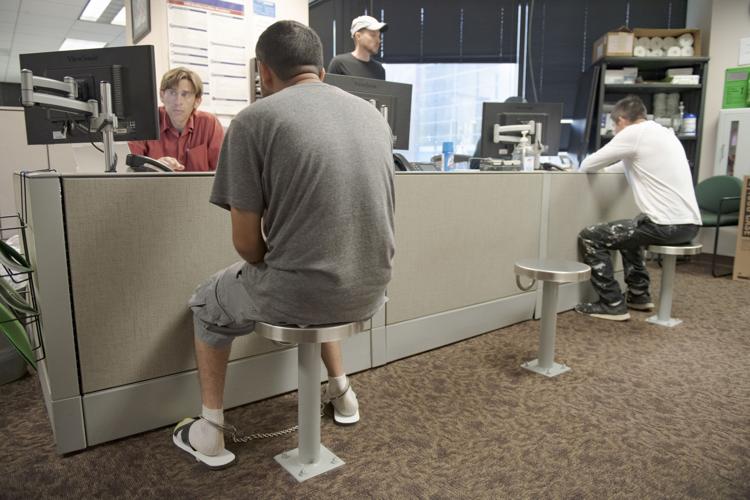Adilene Fernandez Amaro has been vying for American citizenship for the past 6½ years.
In July 2017, her husband petitioned the U.S. Citizenship and Immigration Services to recognize her as his spouse, the first step in her quest to retain permanent residency. Josue Ordaz Lopez, a U.S. citizen, was successful in establishing his relationship with Amaro in 2020.
But in a lawsuit recently filed in federal court, the Denham Springs couple say they have hit a stone wall in the immigration process. They have been waiting for more than two years for the USCIS to process a waiver application that would allow Amaro, a Mexican native, to proceed to the final step in the long process — filing for her Green Card.
But when the couple reached out for answers, government officials estimated the review of their application wouldn’t be done until June 2025 and told them they couldn’t ask questions or for updates until then.
Now, Lopez and Amaro are asking a federal judge to intervene and order the government to expedite Amaro’s waiver request, which would excuse her inadmissibility for living in the United States as an immigrant illegally before the marriage was recognized in 2020.
Baton Rouge attorney Carley Tatman is representing the plaintiffs and filed the Nov. 22 writ in the U.S. Middle District Court of Louisiana.
She said Amaro is “living in a state of legal limbo” and can’t legally work or live freely in the U.S. while she awaits adjudication of the I-601A waiver application.
“That’s obviously entirely too long to wait to know what’s going on, to even get some type of response,” Tatman said in a phone interview. “We don’t know why, in some cases, it takes so long. But it’s just too many years.”
U.S. Attorney General Merrick Garland and several agency officials at the FBI, Department of Homeland Security and USCIS are listed as defendants in the plaintiff’s suit.
USCIS is an administrative branch of the Department of Homeland Security that formed when the Immigration and Naturalization Service was dissolved 20 years ago. The agency processes millions of immigration applications and bids for citizenship each year.
An estimated 11 million undocumented immigrants are in the U.S., according to the Migrant Policy Institute, a policy think tank based in Washington, D.C. Immigration lawyers say notorious backlogs in the adjudication process have worsened over the past few years due to budget gaps and manpower shortages in USCIS’ rank and file.
“The agency has said, basically, that they have more applications than they have staff or funding to process them,” said Trina Realmuto, executive director of the National Immigration Litigation Alliance, a Boston-area nonprofit.
“This is just one form of delays that are affecting immigrant families. But it’s symptomatic of a larger problem with the agency that is delaying adjudication of benefits applications on a much larger scale," she added.
Immigrants like Amaro, who lived in the country without authorization before going through the legal process of citizenship, must get three different applications cleared by USCIS to obtain Green Card status: an I-130 petition needed to establish their marriage or kinship with a U.S. citizen, an I-601A application to waive inadmissibility, and an I-485 petition for permanent residency.
Historical data on the USCIS website indicates it took the agency a little over 22 months to process the three stages in 2018. By fiscal year 2023, which ended Sept. 30, the wait had tripled to more than 66 months.
Now, the processing time is just shy of seven years in 80% of the cases handled by the New Orleans service center, according to estimates Friday on USCIS’ website.
The waiver applications have prolonged the process the most. Five years ago, it usually took the feds less than five months to make a decision on an I-601A filing. Now that wait is up to 44 months in most cases, according to USCIS.
“This unbounded growth in processing times from the time when Adilene filed her form I-601A to now is completely unreasonable,” Lopez and Amaro’s lawsuit states.
The writ alleges the holdups are “completely unreasonable” and the government has violated the Administration Procedure Act, a constitutional statute that requires federal agencies to handle matters presented to them “within a reasonable time.”
The logjam intensified during the pandemic, according to local attorneys who have filed similar claims in U.S. Middle District Court on behalf of exasperated immigrants.
“Honestly, the whole system is broken,” said David Joseph Rozas, senior partner at a Baton Rouge immigration law firm. “It’s absolutely insane. … It takes forever. It’s kind of a joke when it comes to the waiver.”
A USCIS spokesman declined to comment on the lag times, citing the ongoing litigation. U.S. Department of Justice officials could not immediately be reached for comment.
The fight over delays in immigration paperwork is a legal battle with a long track record. Advocacy groups like IMMpact Litigation have lodged class-action lawsuits in several states asking judges to expedite the pace.
But moving the administrative dispute into the courtrooms is a pricey measure that can cost plaintiffs thousands of dollars on top of the fees they must pay to file for citizenship — the filing fee for the I-601A form, for instance, is $960.
“It is supposed to be an extreme step," Tatman said. "You’re supposed to exhaust all administrative remedies before you file a lawsuit like this. Just to show that you’re trying and there’s no other options left."
But Tatman and Rozas agreed that legal action often pays off because it forces the U.S. Attorney’s Office to get involved. That tends to provoke a quicker turnaround on the plaintiffs’ applications, they said.
Describing immigrants as the “backbone of the American workforce,” Rozas said businesses clamoring for skilled laborers are feeling the brunt of the processing delays.
“You talk to any contractor, they’re going to tell you their best concrete guys are from South America, their best wood guys are from Honduras, or their best flooring guys are from Brazil,” he said. “We just have a lack of a skilled labor force in the United States. Because college kids go to a university, there’s not as many kids who want to work in skilled labor positions like this. So there’s this gaping hole of work that needs to be done that is filled by Central and South Americans. But yet we have a breakdown in the immigration application system.”
But the impact hits much closer to home for those waiting for approval. Without the waiver, Amaro can't travel abroad or visit her homeland.
Noncitizens who have entered the country illegally or overstayed their admissibility can be time-barred from re-entering the United States for three years, 10 years or permanently, according to the Immigration and Nationality Act. She can also still be targeted as an immigrant while her waiver application is pending.
With those realities looming, Amaro is feeling the strain of the ticking clock, according to her attorney.
“I’m sure she thought she would’ve had it by now, so it’s got to be really tough on the family,” Tatman said. “It’s just a lot of unknowns. And you can’t even really ask questions or get any answers.”




